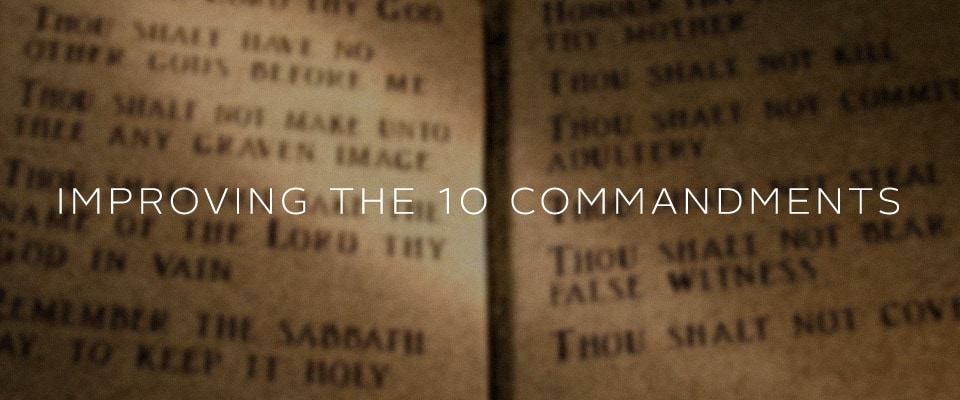If you’ve ever read the New Testament, or visited a church, there’s a word you’ve probably encountered on more than one occasion. Redemption. Yet, if you’re like me, you may have wondered (more than once!) what this word actually means. It’s used all the time in church, in sermons, in Christian liturgy, and song. What it means, however, can remain all but clear. My aim today is shed a bit of light. This is not merely an academic exercise. To the contrary, I hope you’ll recognize that to begin to grasp the nature of redemption is to begin to see the difference that Jesus makes for our lives. To speak of redemption is to speak of why Jesus matters, in the best way possible, for you — today and always.
So what does redemption mean? As used in English, the word redemption generally carries three senses. These can each be tied to God’s redemptive purposes in our lives. `
In the first place, we can speak of someone redeeming a poor performance or poor past behaviour. A baseball player strikes out for several innings but then redeems himself by smashing a home run. A spouse, after forgetting 2-3 anniversaries, redeems his forgetfulness by remembering the next one with a extravagant celebration. Along these lines, God’s redemption intends to “make up for” for the world’s bad past performances. This is what St Paul is getting at in Romans 8. All that we suffer and lose—all our groaning and disappointments—will eventually become a disappearing memory. This is something that we can taste at present, though it will remain limited until the lordship of Christ is complete.
In the second place, we can speak of redemption as liberation from alien control. Imagine, for instance, that you require a loan. To secure the loan, you provide some collateral: you’re grandmother’s diamond earrings. Until the loan is fully repaid, you are going to be temporarily alienated from these earrings. They are under the control of your lender. If you default, kiss the earrings good-bye. But, if repayment is made, your heirloom gets redeemed. This picture of redemption is very common in the Old Testament (see Job or Ruth). God’s redemptive labours in the world work like this, too. Have a read of Romans 6. From God’s point of view (which is to say objectively) humans are under alien control to a lordless power the Bible calls sin. In this sense, sin isn’t just something we do, t‘s something that does to us. It dominates, warps, and oppresses humanity. It binds and distorts. God enters creation to redeem us from this abysmal state of affairs. He releases us from alien control.
In the third place, the word redemption denotes a promise made and kept. In the 1950’s, retail companies launched a “trading stamp” marketing strategy. By shopping a certain stores, customers could receive stamps. They were promissory notes. When you collected a certain number of stamps, you could redeem them for merchandise. It was in these years, that many storefronts contained large signs that read “Redemption Centre.” In all this, we see that redemption can mean the fulfillment of a promise made. So also does God’s redemption boasts this quality. God makes promises and he keeps them.
The New Testament reports God’s keeping of his redemptive promises from the Old Testament. At the centre of this is God’s promise to send a Messiah, who is the pillar of God’s redemptive purposes. The New Testament also contains a new set of promises from God. These promises pertain to the present in-breaking of God’s Kingdom, the outpouring of God’s Spirit, and the eventual creation of a new heavens and new earth. The first two of these new promises are already being fulfilled. The last is yet to come. And we wait and hope. But we do this remembering that God’s track record is solid.
In sum, redemption, as biblically depicted, refers to God redeeming poor past performances in this world and in our worlds. It also refers to God liberating humans from the bondage and alienation of sin. Lastly, redemption encompasses God’s promises, which have (and will be!) made good. This is what Christians mean when they speak of redemption.
This does not mean that we are totally immune from experiences and events that create the on-going need for redemption. But it does make it easier to be continually aware that such wreckage will eventually, even in this life, give way to light, healing, and endless love.
In light of this survey, I want to conclude by pondering how Christ’s redemption begins to plug into our lives. There’s much that could be said. I’ll limit myself to two things.
To embrace God’s redemption is to know that the things in your life which beg for redemption will not have the last word. This attitude is the direct result of trusting Christ. To trust Christ is to be made capable of transcending present toils and griefs. To see through and past them. The Bible says that we should trust Christ because he loves us — and not with a sentimental love. His love was sacrificial; he laid down his life for us. This does not mean that we won’t feel sorrow, pain, and even moments of destitution. Rather, it means that such feelings won’t dominate. They won’t win the day. They are, ultimately, deceptive. To know that there is light at the tunnel’s end makes all the difference in enduring those moments when the darkness feels so brutal.
To embrace God’s redemption is to enter a community—a shared pattern of life!—with others who also desire to embrace God’s redemption. In this sense, the church, which is nothing more than a label for Jesus’ family, plays a crucial role in our present experience of God’s redemption. The church is a place where people have a shared view of what (and who!) they trust to define their identity and destiny. This shared view reflects redemption as its biblically portrayed. It thus leads us to be a community of discernment. Where is God at work to remedy and reverse the mishaps of the world and our lives? Where is God working to free us from the power of sin? Where are God’s promises being fulfilled — promises to share his life and love with us.
Our present taste of redemption is, in large part, linked to belong to the church. In the church, we find ourselves situated in a new spiritual and social context. This has everything to do with how we weather the storms of life. The losses. The sufferings. This does not mean that we are totally immune from experiences and events that create the on-going need for redemption. But it does make it easier to be continually aware that such wreckage will eventually, even in this life, give way to light, healing, and endless love.
All of this is nothing more than a paraphrase of what St Paul sings about at the end of Romans 8, ‘If God is for us—a God committed to our redemption!—who can be against us’? May this become a paraphrase of our own attitudes, too.




